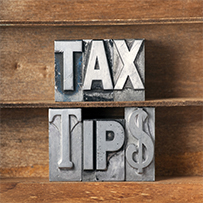
Do I Need a Separate Business Bank Account?
It’s imperative for business owners to have two items and I stress it all the time: A separate business bank account and an accounting/bookkeeping system to organize business finances. This blog will be about having a separate business bank account.
Some businesses legally have to separate business and personal funds. If your company is a separate legal entity, business funds must be in a separate bank account.
You need a bank account for your business if you operate under a DBA name. What is a DBA? A DBA name is a company’s “doing business as” name. When you use a DBA, you register a different business name from your own name.
Sole proprietors and partnerships often need to file DBAs. Under these types of business structures, the legal name of the company is automatically your name. For example, if Joe starts a catering company and wants to call it Joe’s Catering, he would need to register a DBA.
You also need a separate business bank account if you operate as an LLC or a corporation. LLCs and corporations are separate entities from the owners.
Sole proprietorships and partnerships without DBAs are not legally required to have a business bank account.
Why Should I Use a Business Bank Account?
Even if you are not required to use a business bank account, you may want to consider separating the funds. Using one bank account for business and personal finances can get confusing.
If you don’t separate business and personal funds, you might experience these issues:
- Disorganized accounting records
- Inaccurate tax filings
- Overspending
- Missed opportunities for growth
When you use a bank account strictly for business, your bank statement can be a useful tool. The business account statement helps you track your company’s income and expenses. You can use a business bank statement to reconcile your books, track profitability, and project your cash flow.
If personal funds are in the same bank account, it may be hard to measure your business’s performance. You must go through the statement, line by line, to separate business and personal transactions by hand. A business bank account can save you time when it comes to organizing your finances, and creating an income statement.
How Do I Get a Business Bank Account?
Getting a business checking account can be simple. Many banks offer free or low cost business checking accounts.
The types of business bank accounts vary. Consider how many monthly transactions you will make, the lowest balance amount you expect to have, and the bank fees you can afford. Review all your options before opening a business bank account.
You might want to open a business bank account at the same bank that handles your personal finances. That way, you can do all your business and personal banking at the same location.
How Do I Open a Business Bank Account?
To open a business bank account, you can go into your local bank or apply online. Sometimes, you cannot apply online. You must go to your bank for a business bank account if you:
- provide money services (e.g., issue money orders or store value cards)
- are a telemarketing business
- deal precious metals
- operate a gambling business
Depending on your business structure, you need certain documents to open a business bank account.
Sole proprietorships need:
- A Social Security number or taxpayer identification number (EIN)
- A business license or business name filing document (e.g., DBA form)
Partnerships need:
- A taxpayer identification number
- A partnership agreement or business name filing document (e.g., DBA form)
Corporations need:
- A taxpayer identification number
- Articles of incorporation
LLCs need:
- A taxpayer identification number
- Articles of organization
Do I Need a Separate Bank Account for My Business?
ALWAYS ensure you have a completely separate bank account for your business and a separate bank account for your personal life. This just creates clarity when completing tax returns etc. as to what your business income and expenses are and what your personal income and expenses are. Trust me, you do not want to get the two confused!
Using a bank account exclusively for business transactions saves you time.
A business bank account can also improve accuracy in your records. Correct financial records help with your tax filings, budgeting, and work with your tax preparer/accountant.
Follow us: @the_tax_lady | TACCT on Facebook
Read our Weekly Tax Tips
Schedule a Tax Appointment


